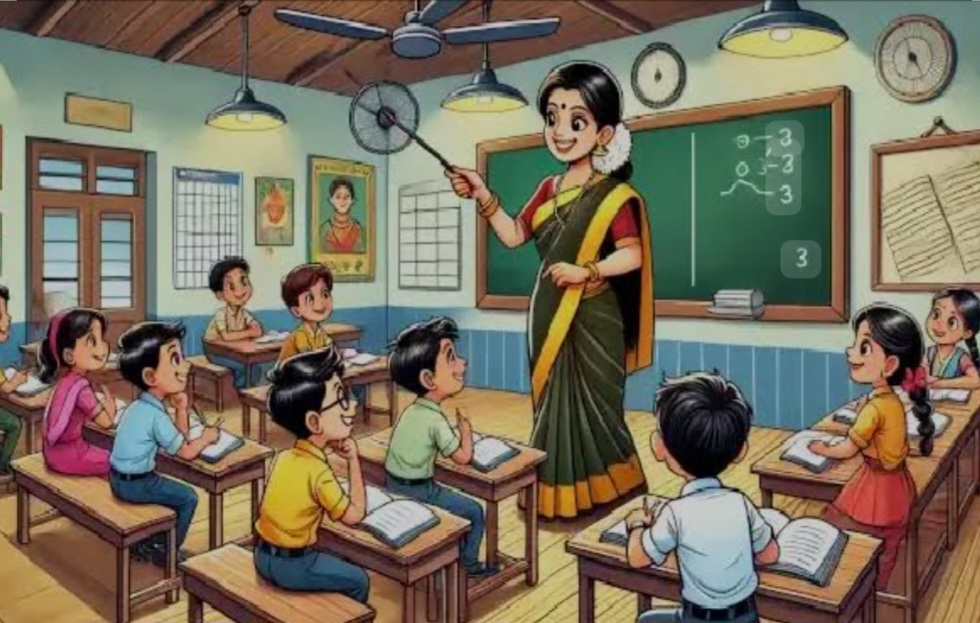Himalaya Harbinger, Rudrapur Bureau
By Dr. Bharat Pandey, M.Sc., Ph.D., FLS (London)
Government P.G. College, Ranikhet, Almora
In the age of rapid technological evolution, the phrase “code is the new literacy” is more relevant than ever. Just as DNA defines the biological characteristics of living organisms, code defines the digital framework of our contemporary world. From the apps we use daily to the algorithms that influence global economies, code is at the heart of modern civilization. The invisible strands of code are interwoven into every aspect of our lives, shaping our present and forging the path toward our future.
The Digital Genetic Blueprint
If DNA is the blueprint for life, then code is undoubtedly the blueprint for the digital world. This genetic material of the digital universe is written in languages like Python, JavaScript, and C++, and it powers everything from social media platforms to life-saving medical devices. In the same way that slight variations in DNA can lead to dramatic differences in species, changes in code can lead to groundbreaking advancements in technology.
Consider the smartphone in your pocket. At its core, it is a marvel of software and coding, enabling instant communication, navigation, and information access. However, these advances are only the beginning. Emerging technologies like quantum computing and artificial intelligence are pushing the boundaries of what code can accomplish, giving rise to systems capable of learning, adapting, and even making decisions on their own.
The Code-Driven World of Tomorrow
Looking to the future, the influence of code on our lives will only intensify. As AI continues to advance, it will become a critical component of various sectors, including healthcare, finance, and education. Imagine AI systems that can diagnose diseases more accurately than any doctor or algorithms that can forecast economic trends with unparalleled precision. The power of code lies not only in its ability to automate tasks but also in its potential to drive innovation and discovery.
One area where code is making significant strides is biotechnology. By decoding the genetic instructions of living organisms, scientists are developing treatments that are tailored to individual patients. This new wave of personalized medicine is being driven by algorithms capable of analyzing massive datasets and identifying patterns that were previously invisible. In this way, code is not only shaping our digital future but also helping us unlock the secrets of our own biological makeup.
The Ethical Dilemmas of a Coded World
While the potential of code is virtually limitless, it also presents a series of ethical challenges. As algorithms increasingly influence our decisions and behaviors, we must ask ourselves: who is programming these systems, and whose values are they reflecting? For instance, AI-driven facial recognition technologies have been criticized for their potential to infringe on privacy and civil liberties. As these systems become more prevalent, society must establish ethical guidelines to ensure that technology serves humanity, rather than the other way around.
Another pressing issue is the potential for code to deepen social inequalities. Access to technology and digital literacy are essential for success in today’s world, yet these resources are not evenly distributed. As we continue to weave code into the fabric of our society, we must also work to ensure that its benefits are accessible to all, rather than a privileged few.
The Future Lies in Our Hands (and Our Code)
The responsibility for the future of technology rests not only with software engineers and data scientists but also with educators, policymakers, and citizens. By fostering a culture of digital literacy and ethical awareness, we can empower the next generation to shape a future that reflects our highest aspirations. It is up to us to decide how we will use this powerful tool to address some of the world’s most pressing challenges.
In conclusion, code is more than just lines on a screen; it is the DNA of our digital age. As we move forward, we must be mindful of how we wield this power. With careful consideration and a commitment to equity and ethics, we can harness the potential of code to build a future that is not only technologically advanced but also just and humane.
The future is coded—let’s make sure it’s written wisely.











